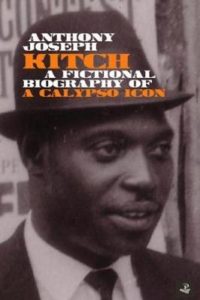|
Getting your Trinity Audio player ready...
|
Reading Time 3 mins
April 24, 2022
‘With thoughtful lyrics, arresting melodies, and gorgeous harmonies, [Kitch] became a pulse of the people, the voice of carnival, bending phrase after phrase.’
April 18th, 2022, marked Aldwyn “Kitchener” Roberts’ birth centennial. The Grandmaster in the art of calypso, Kitchener’s music provides unique insights into Trinidad and Tobago’s culture. He was a griot, singing colorful tales about a colorful and complex society.
Born in Arima, Trinidad, Aldwyn learned to play the guitar at an early age, becoming a local sensation. Soon after, he started performing in calypso tents in Port of Spain and adopted the sobriquet, Lord Kitchener. He quickly gained national attention with “Lai Fook Lee” and “Jump in de Line” in the mid-1940s. In 1948 Kitchener would leave Trinidad for England on the Empire Windrush, the vessel that brought the first significant group of postwar West Indians to Britain.
While disembarking the Empire Windrush, Kitchener sang “London Is the Place for Me,” a love song to a new home, for the press who greeted the ship. But in London, he recorded “Nora,” where he tells his girlfriend that he has to go back to Trinidad to “meet mih grandmother.” Kitchener would eventually return to Trinidad in 1962.
In five verses, Kitch could reveal more about his birthplace than most journalists could reveal in five thousand words. With thoughtful lyrics, arresting melodies, and gorgeous harmonies, he became a pulse of the people, the voice of carnival, bending phrase after phrase.
Dance rhythms are ever-present in Kitchener’s music, even when he’s chronicling serious topics like the murder trial of Abdul Malik in “One to Hang.” The gentleman’s game gets a spirited bounce in “Cricket Champions,” his reading of the West Indies’ victory over England at Lord’s in London. In 1971 he demanded fair treatment for Trinidad and Tobago’s marginalized people in his uptempo cry, “Black Power,” which ends with a wailing saxophone solo.
Kitchener captured the emotional rollercoaster of Trinidad and Tobago’s annual festival. From the euphoric “Home for Carnival” to the melancholic “The Carnival is Over,” carnival moods come to life. “Miss Tourist” gives a foreigner step-by-step instructions on playing mas. And Kitch invites “Margie,” a beautifully tailored piece replete with jazz harmonies, to meet him by Green Corner in Port of Spain so they could paint the town red together.
Kitchener wrote some of the best compositions ever played by steelbands. His songs are anthems. Eighteen Kitchener tunes were transformed into panorama-winning masterpieces, starting with North Stars’ “Mama Dis is Mas” in 1964 and ending with Renegades’ “Guitar Pan” in 1997, three years before he died. When others raised concerns about Pan’s potential demise, Kitch declared, “Pan Here to Stay!” He never lost faith in the art form’s capacity to captivate.
Kitchener’s music is timeless. “Sugar Bum Bum” can still mashup a fete. “If You’re Brown,” written decades ago, still has currency. And if Trinidad had a 2022 carnival, Aaron “Voice” St Louis’ “Out and Bad,” a remake of Kitchener’s 1977 “Brooklyn Woman,” would have been a road march contender.
Aldwyn Roberts gifted the world a vast catalog of music. Staggering by any measure. For the next 100 years and beyond, artists of all stripes will study his works and discover his genius.
Continue to Rest in Peace, Grandmaster (born in 1922, Kitchener transitioned on February 11, 2000).
Born in Belmont, Trinidad, Garvin Blake began playing the steel pan at six and migrated to Brooklyn at nine. He later played and arranged music for Metro Steel, Despers USA, and Pan Rebels Steel Orchestras in New York and played for Desperadoes and Pandemonium in Trinidad. He has released two pan jazz CDs, Belle Eau Road Blues and Parallel Overtones. Garvin has performed at Lincoln Center’s Alice Tully Hall, Jazz at Lincoln Center Rose Theater, The Brooklyn Center for the Performing Arts, and many of New 0f York City’s leading jazz clubs. He also played in jazz and music festivals in the Caribbean, most recently The Rhythms of Spice Festival in Grenada in June 2019.

Great read!
Great article. When I arrived in Cuba in ‘83, I was amazed that Sugar Bum Bum was literally an anthem for West Africans. His body of work is astounding. Great article by Garvin and may the creator of PP99 and so many other unforgettable melodies RIP.